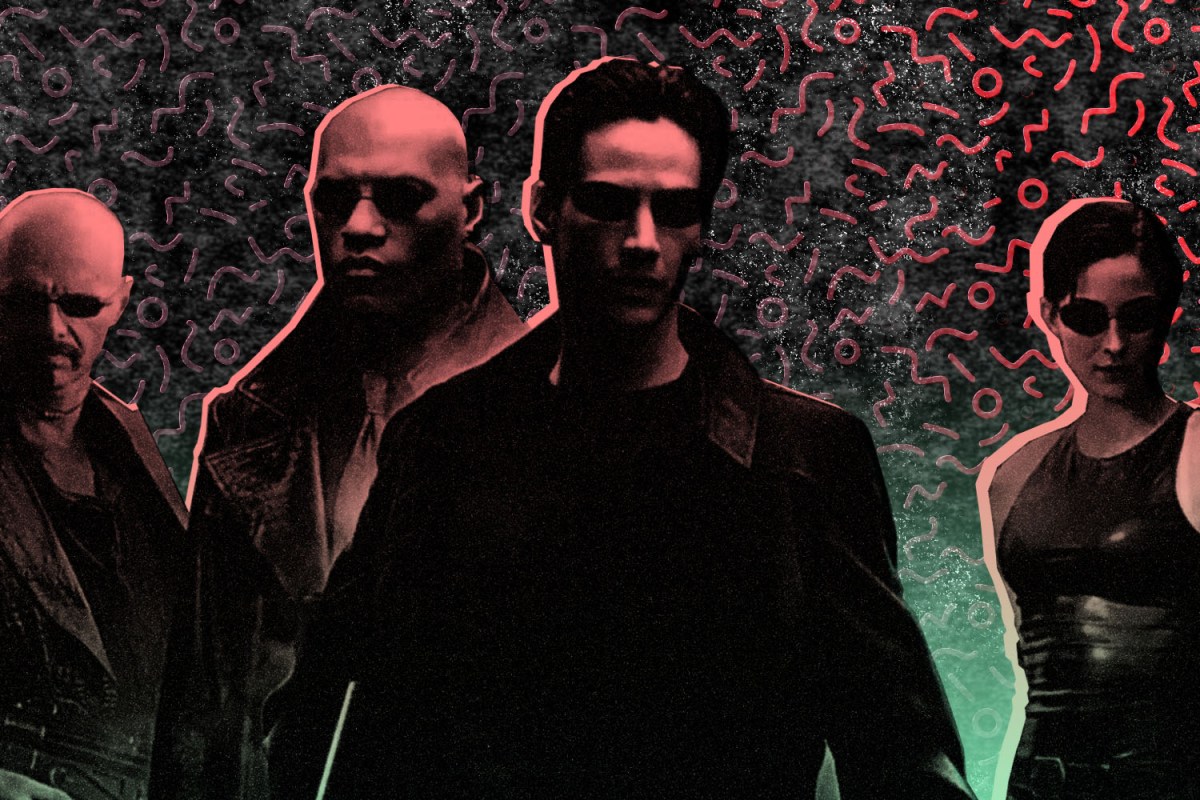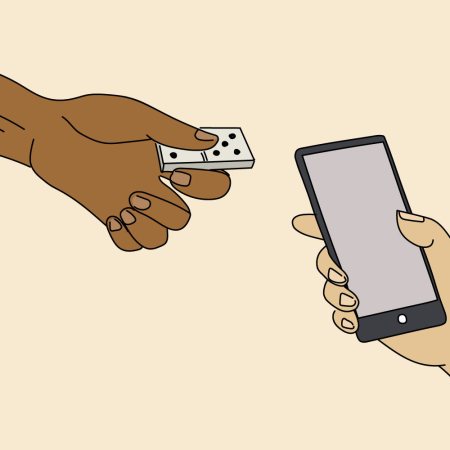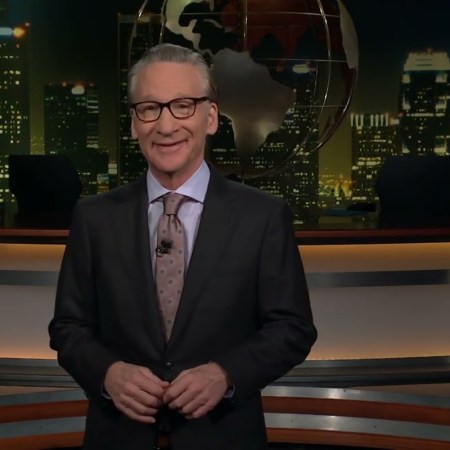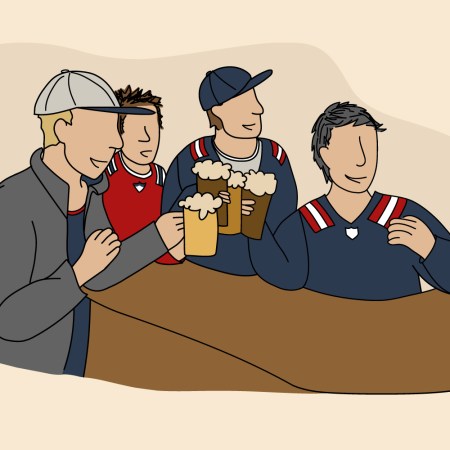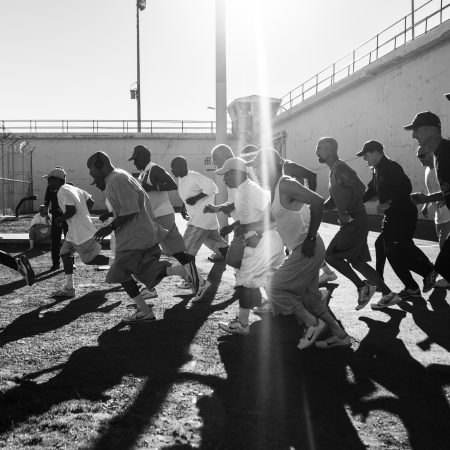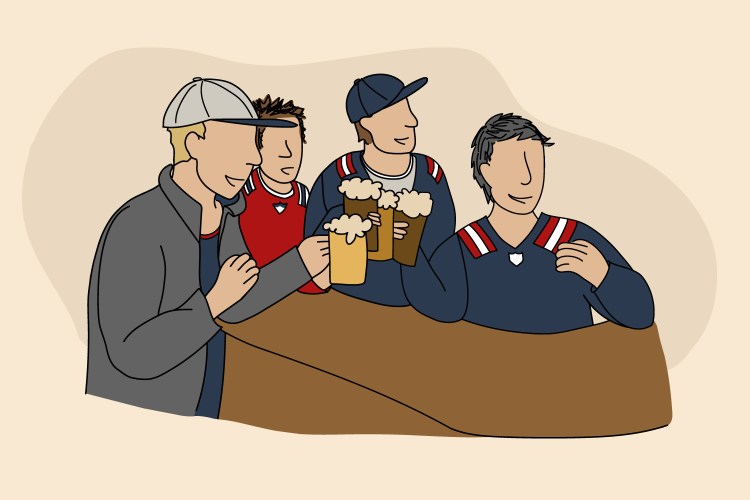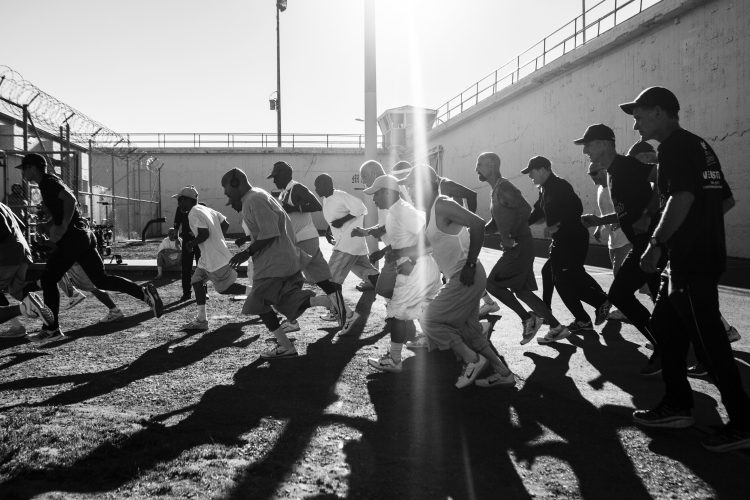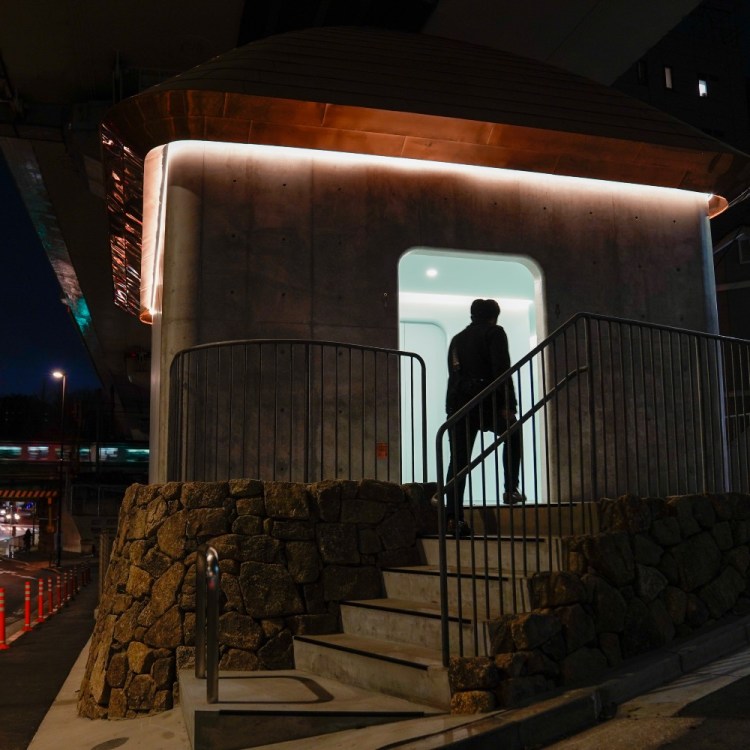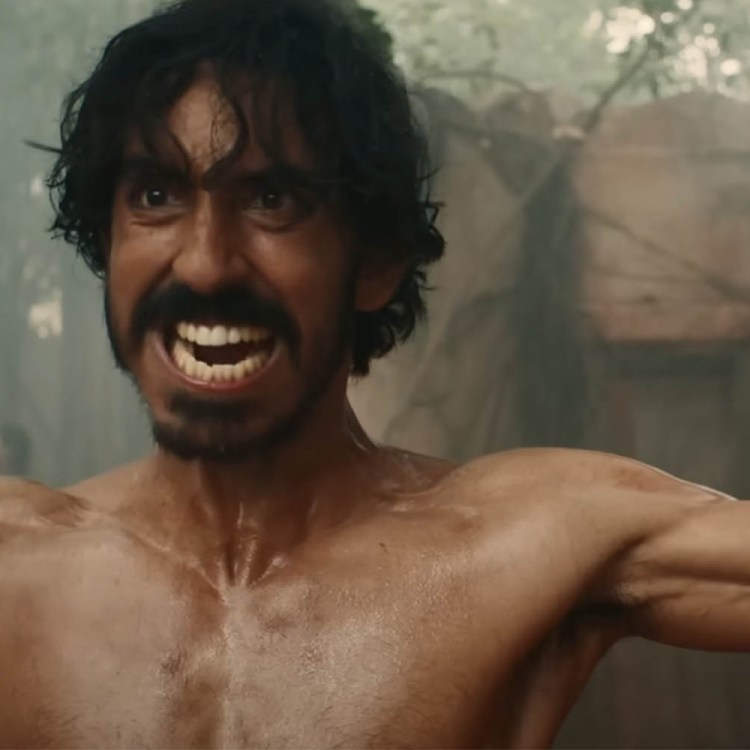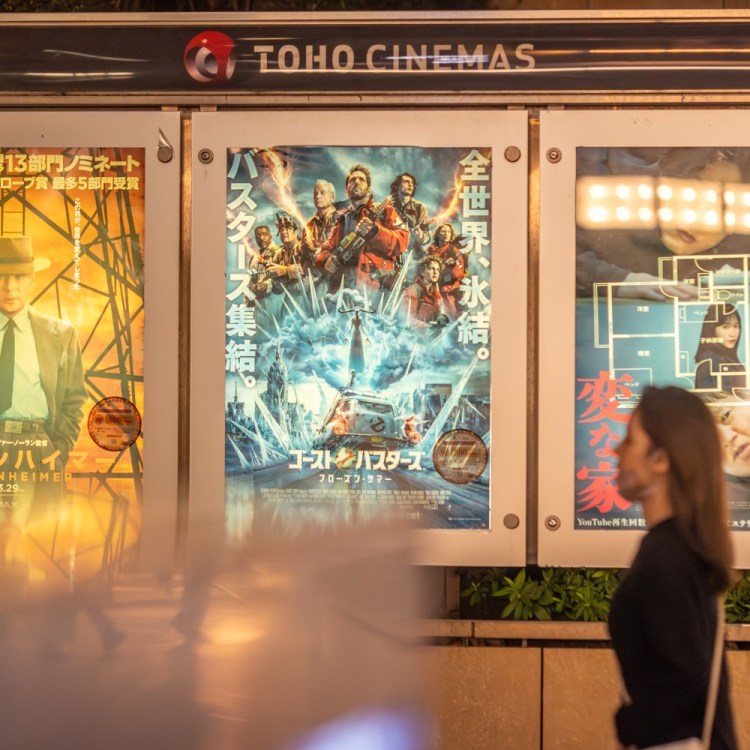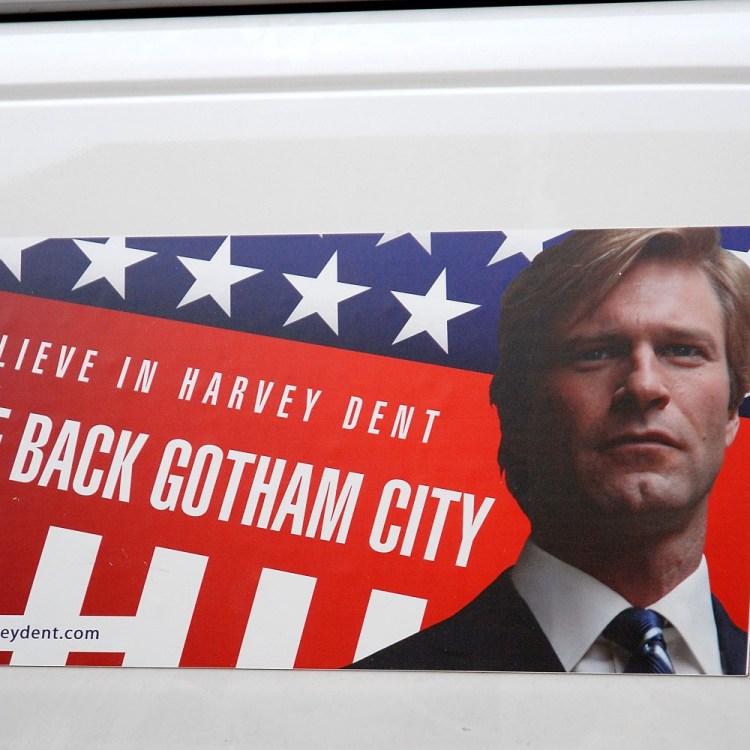
It’s like we never left the 1980s.
You turn on your TV and you get The Goldbergs and the guy who “wrote” The Art of the Deal speaking from a podium on the White House lawn. It feels like synthesizers on an album represent a musician “growing up” (see: Tyler, the Creator’s Igor) and Hollywood plans to reboot everything from Clue to yet another Ghostbusters film.
When will our obsession with the “greed is good” decade finally fizzle out? If today’s millennials follow the lead of their cultural forebears, maybe this year.
Let’s rewind: back in 2016, author/DJ Lori Majewski (Mad World) explained to Vulture why TV was suddenly being inundated with Reagan-era staples like Journey, Phil Collins and Tears For Fears.
“We’ve had decades of listening to Led Zeppelin,” she said. “You know: ‘Sympathy for the Devil’ was used in everything, right? We’ve heard those songs over and over and over. Now people who are in their late thirties through early fifties, they’re running the shows, literally. That’s why this cool music is being heard.”
This ascension of ‘80s kids to positions of creative power explains why you’ll still hear INXS or a-ha on shows ostensibly geared toward today’s teens (hello, Riverdale and Umbrella Academy). Or why Stranger Things is the most-watched show on Netflix. And maybe why we’re still debating Star Wars — yes, a late ‘70s film, but one that still informed the sensibilities of every child in the following decade.
If we’re looking at current 35- to 40-year-olds in the creative world — and they follow the same pattern as laid out by Majewski back in 2016 — this means we’ll soon be inundated with ideas and concepts from those millennials’ formative years. Which is roughly about 1995-2000, when those same creatives were teenagers and young adults.
Of course, nostalgia for the ’90s is already here: you see it in the chunky sneakers and Jerry Seinfeld becoming a style icon, you hear it in the feedback-drenched sounds of Car Seat Headrest or Soccer Mommy. But when will we truly start living in it?
Well, we already are.
The future of film is … the 1990s
Jonah Hill was ahead of the revival when he made Mid90s, one of two big films last year set in the Clinton era (the other being Captain Marvel, which fully embraced the days of Elastica, Blockbuster and AOL). “If I look at movies like Dazed and Confused or Diner, there’s usually a 20-year kind of clock where people have the time or perspective to look back,” Hill noted in Newsweek.
Mid90s was released by A24, a boutique movie studio/film distributor (Lady Bird, Moonlight, The Witch, Uncut Gems) that harkens back to the glorious ’90s era of Miramax (yes, before we knew anything about co-founder Harvey Weinstein). The company doesn’t specialize in any one genre — but having “A24” in the credits is a calling card to cinephiles that we’re in for something good. Even their online shop is cool.
Surprisingly, it doesn’t appear that many mainstream films coming out this year or next will be set in the ‘90s, but Hollywood is certainly kicking the tires on a lot of franchises from that time period. Last year we had the most recent Kevin Smith film involving Jay and Silent Bob (a loose spinoff of 1994’s Clerks), a successful sequel to Jumanji (1995) and a sort-of sequel to M. Night Shyamalan’s 2000 semi-hit Unbreakable in Glass. (We’ll pretend that Men in Black spinoff didn’t exist, just like Will Smith seemed to.)
Speaking of (Will) Smith, 2020’s already brought us a very successful Bad Boys for Life — the third movie in a series that launched in 1995 — and we’ll soon see reboot/sequels of Mortal Kombat, The Matrix, Scream, Space Jam, The Craft, Blade and Austin Powers. And, somehow, a TV series based on 1997’s flop Event Horizon, so yet another generation can be scarred for life.
The name of the game in TV: Reboots
We won’t get Friends, as much as everyone wants it. But we have recently seen updates on Party of Five, Sabrina and Mad About You — and coming soon to Hulu, we’ll have the ultimate reboot from the post-grunge era: High Fidelity, a television reimagining of Nick Hornsby’s 1995 novel and subsequent 2000 film.
More TV nostalgia in the works: Sequels and reboots of NYPD Blue, Buffy the Vampire Slayer (which The CW network is basically ripping off every week anyway) and Lizzie McGuire.
As far as ‘90s shows that could use some new tales? I don’t think we’ve seen the last of Law & Order, Ally McBeal, Dawson’s Creek, Felicity, Sports Night or ER, whether in name only or as some sort of sequel.
And isn’t it time Shia LaBeouf thought about an Even Stevens update?
The return of the soundtrack?
While Hollywood’s re-embraced the film and television concepts of the late ‘90s, the actual sounds of the decade seem relegated to TV ads and retro-leaning radio stations. But we’re assuming music supervisors will eventually catch up and we’ll get our fill of “Wannabe,” “Torn” and “Bitter Sweet Symphony.”
More interesting? Musical trends from the end of the century making a not-so-quiet comeback behind the scenes. Witness Oneohtrix Point Never’s dramatic score for Uncut Gems, which hails from Warp Records and certainly evokes (in spirit) the IDM of Aphex Twin and Squarepusher that dominated the label in the 1990s.
And then there’s Trent Reznor, who (alongside Atticus Ross) scored Watchmen, last year’s best TV soundtrack. The propulsive, ominous and occasionally discordant noises the Nine Inch Nails leader produced for the HBO series wouldn’t have felt out of place on The Downward Spiral (especially those song titles; here’s hoping “Nun With a Motherfucking Gun” gets an Emmy nod).
As for revitalized genres, we’re certainly ready for the return of trip-hop — the genre canonized by Tricky, Portishead and Massive Attack — and embraced more recently by the likes of Billie Eilish. Or rap rock that doesn’t suck, a la the Judgment Night soundtrack, or the recently reunited Rage Against the Machine (who, btw, were a staple of the first two Matrix movies). There’s always a place in film and TV for sensual downtempo tunes or aggressive guitar anthems.
And why not both? Now might be the perfect time for Hollywood to revitalize the multi-artist, multi-genre soundtrack and return that concept to its lofty ‘90s stature (see: all early Tarantino films, Cruel Intentions, Lost Highway, Trainspotting, etc.). We’re currently having a moment dealing with both the popularity and backlash to Spotify’s algorithmic playlists; getting a human hand to guide and enlighten us might be a retro movement any age group could embrace.
This article was featured in the InsideHook newsletter. Sign up now.
